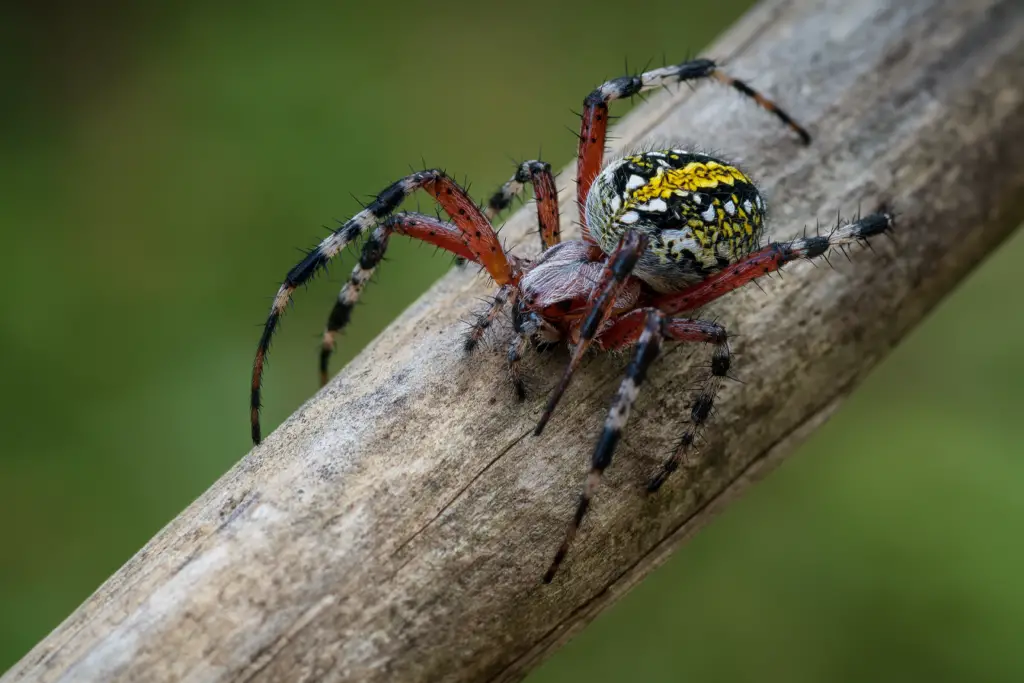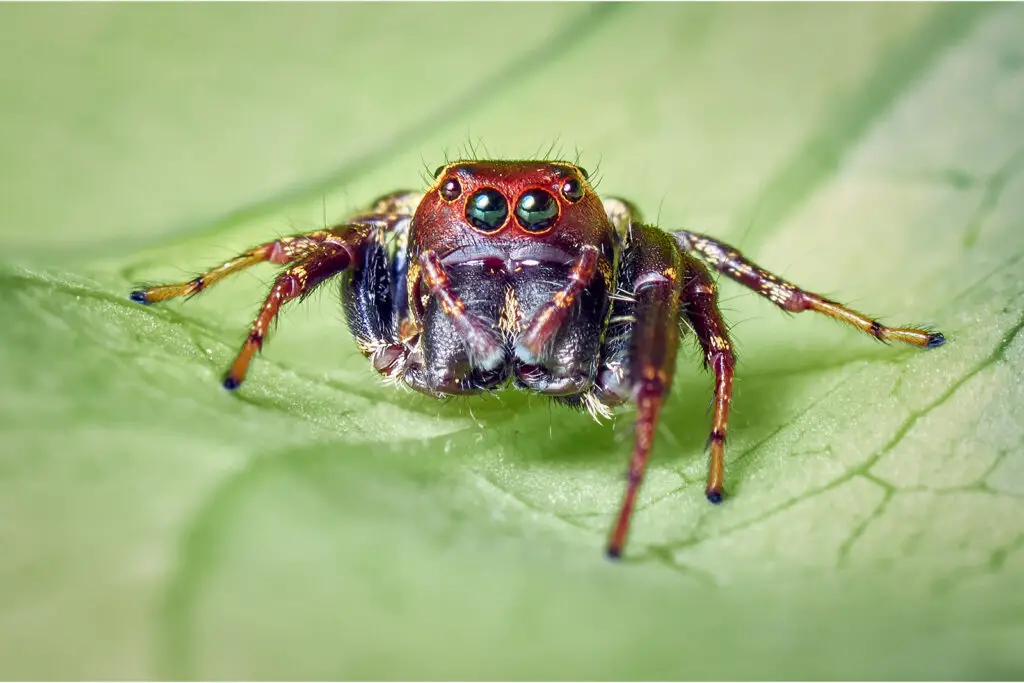
When you encounter a house spider scurrying across your wall, it’s not just random action. Those eight-legged visitors in your home are more than just simple pests—they are creatures with a level of intelligence that may surprise you. You might wonder, can these spiders actually think, learn, or even remember?
The answer lies in the evolving research around spider cognition. While spiders may not be writing novels or solving math problems anytime soon, they exhibit a variety of behaviors that suggest they’re quite smart in their own right. For instance, they are skilled architects, weaving intricate webs that serve not only as homes but also as traps for prey, indicating a degree of problem-solving ability.
Moreover, some spiders have shown the capability to learn from experience. Jumping spiders, a common type of house spider, have demonstrated the ability to navigate complex mazes, which points to a form of spatial intelligence. This has led some scientists to believe that these tiny arachnids could possess the basic building blocks of self-awareness. So the next time you watch a spider in your home, consider the possibility that there’s more going on in its minute brain than we might assume.
Understanding Spider Cognition
Exploring the minds of spiders unveils a fascinating web of intricate behaviors that reflect their cognitive capabilities. Let’s take a look at how they solve problems and the way their intelligence measures up to other arachnids.
Cognitive Abilities in Spiders
Spiders exhibit problem-solving skills that suggest they have more going on in their tiny brains than you might expect. For instance, certain species are known for their complex web-building strategies and dynamic hunting techniques. These behaviors imply a level of understanding and memory use. One intriguing aspect is their ability to adapt their hunting strategies in response to previous successes or failures—a hallmark of cognitive learning. Research indicates that behaviors once considered purely instinctual may actually involve cognitive processes. In fact, some spiders can navigate mazes, which suggests they possess a mental map of their environment.
Comparative Intelligence Among Arachnids
When you compare spiders to other arachnids, such as scorpions and ticks, their intelligence stands out. Spiders demonstrate a certain plasticity in their behavior, meaning they can change their approach in response to environmental changes — a trait less observed in many other arachnid species. This adaptiveness is remarkable, especially when considering their relative brain size and suggests that spiders may be among the more intelligent members within the arachnid family.
House Spiders’ Behavioral Indicators
When observing house spiders, you’ll notice certain behaviors that hint at their intelligence. From the way they solve problems to the complexity of their webs, these indicators provide insights into the cognitive abilities of these common arachnids.
Problem Solving and Learning
House spiders like the house spider often show an impressive ability to tackle new challenges in their environment. For example, if their web isn’t catching enough prey, they might relocate it to a better spot. This adaptability signals a level of problem-solving capability and learning from past experiences.
Web-Building as an Intelligence Marker
The intricate webs spun by spiders are not just random structures; they are carefully crafted traps. The variation in web designs, especially as observed in common household spiders, suggests a kind of architectural intelligence. Different types of silk and web patterns cater to specific environmental conditions and prey types, indicating a deeper understanding of their habitat and hunting strategy.
Observational Studies and Experiments
You’ll discover that scientists use both lab tests and field observations to explore the cognitive abilities of house spiders.
Laboratory Tests on Spider Intelligence
Jumping spiders, particularly those from the Portia genus, are the main subjects in laboratory experiments studying spider intelligence. Researchers have found these spiders to be capable of complex behavior such as problem-solving and planning. In these controlled environments, spiders are given tasks that mimic challenges they would face in the wild, such as navigating mazes or choosing the best hunting strategies.
Field Observations of House Spiders
During field observations, scientists study spiders in their natural environment to understand their behavior and cognitive capabilities. For example, the intricate patterns of a spider web are not just for catching prey but also display the spider’s ability to adapt to different environments, which implies a level of spatial intelligence. Observers watch and record spiders as they interact with their surroundings, noting the extent of their problem-solving abilities and memory use.
Implications of Spider Intelligence
When you consider the intelligence of spiders, it’s crucial to understand that their cognitive abilities have significant effects on both the ecosystems they inhabit and the way humans interact with them.
Ecosystem Impact
Spider intelligence plays a vital role in their ecological contributions. Their ability to solve complex problems helps maintain the balance of insect populations. For example, the strategic web-building of spiders, informed by their innate intelligence, allows for efficient and adaptive trapping of prey, which in turn keeps insect populations in check. This pest control service is crucial to the health of various ecosystems.
Human-Spider Interactions
Your interaction with spiders may change when you acknowledge their intelligence. Recognizing the smarts of spiders, such as those shown by jumping spiders, can foster a greater appreciation or interest in them. In some cases, this promotes a more conservation-minded approach towards arachnids, seeking to protect spiders due to their intricate behaviors and the role they play in ecosystems. This knowledge can also lead to more humane ways of managing spiders in your home or garden, using their behaviors to guide non-lethal control methods.
Frequently Asked Questions
In exploring the cognitive capacities of house spiders, you might be surprised at what these arachnids can do. Let’s address some common curiosities about their mental abilities.
How intelligent is a spider?
Spiders demonstrate a basic level of intelligence, particularly in their ability to hunt and create intricate webs, which suggests problem-solving skills. For example, spiders are known to tweak their web designs based on experience and environmental factors.
Do spiders have the ability to recognize human faces?
Current research does not support the idea that spiders can recognize human faces. Their vision is adapted for detecting quick movements and navigating their environment rather than distinguishing human facial features.
Can spiders perceive human emotions such as fear?
There is no scientific evidence to indicate that spiders can perceive human emotions like fear. Their interactions with humans are more likely driven by their survival instincts rather than an understanding of human feelings.
Do house spiders have a good memory?
Spiders likely have a form of memory that aids them in daily functions such as navigating their webs and recalling successful hunting strategies, but it is unlikely to be as advanced as in some vertebrates.
In terms of intelligence, how do spiders compare to dogs?
Dogs are generally considered to be more intelligent than spiders. They have larger brains relative to their body size and can perform more complex tasks, show social learning, and have better memory capabilities.
Are spiders more intellectually capable than other insects?
Spiders, as arachnids, often display more complex behaviors compared to many insects, such as advanced hunting tactics and web construction, which could be viewed as a sign of greater intelligence. However, this is a complex topic, as different types of insects and spiders have various specialized abilities.
Driven by a passion for those tiny creatures that rule our world, we at Bug Domain strive to be your go-to resource for information on insects.




